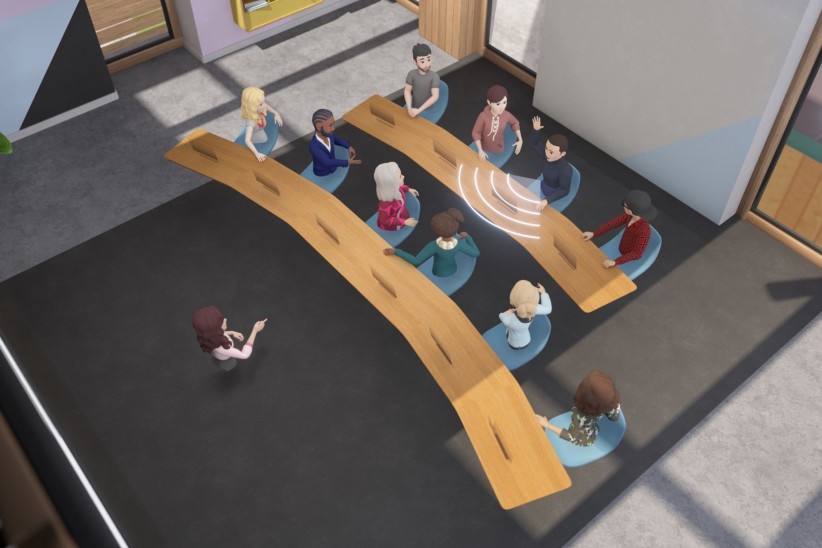When making hiring decisions, hiring managers, especially those in the Tech industry, look for employees with the right set of technical and soft skills. However, that search may take too long.
March 3, 2022
Future of Work
Future of Skills
Wellbeing
Tech
This article was originally published by Modis
According to employment expert Alison Doyle, the average time it takes to hire a new employee, from the first interview to an official job offer, is approximately 24 days. This gives candidates plenty of time to accept a position elsewhere – maybe even with a competitor. Of course, that time will vary by profession and demand, and tech and IT hiring trends can make this much more challenging.
While the desire to take your time is certainly understandable – after all, a bad hire can cost thousands of dollars and set projects back for months — delaying a hiring process or decision can cost you, too. So how can you accelerate the tech recruiting process and connect with better hires more quickly? Read on to find out.
Hiring managers are usually given a set of criteria to work with in order to find talent. However, the data your hiring manager receives may not accurately reflect the needs of your team or the skills required for a particular project.
Perhaps their qualifications and backgrounds differ from the data you're currently using to find new talent. You already have great employees, why not have a closer look at their profiles? After all, you want more employees like them.
In light of this new information, it may be time to revise your job description. Creating a compelling and thorough job description will go a long way in finding and hiring the right talent. This will help a hiring manager or recruiter be more selective about the candidates they bring in for an interview, thus accelerating the hiring process and securing top candidates for the position faster.
It is now common practice for companies to impose a paid test-drive or probation period to ensure the new hire is a good fit for the position and works well with the team. Some organizations will also call this a freelancing period. This allows companies and teams to gain hands-on experience and work directly with an incumbent.
Smaller businesses may balk at the potential costs, but freelancers or temp-to-perm employees are great options that can help you bring candidates aboard quickly, see them in action, ensure that they are a good fit, and make a more informed long-term decision at a later date. This technique may seem somewhat unorthodox, but remember that it also allows prospective employees to test-drive your company. You are looking to hire amazing talent, but candidates are looking for the perfect company, one they will not only feel comfortable working for, but one that gets them excited to work for and that they can see themselves having a long career with.
According to employment expert Alison Doyle, the average time it takes to hire a new employee, from the first interview to an official job offer, is approximately 24 days. This gives candidates plenty of time to accept a position elsewhere – maybe even with a competitor. Of course, that time will vary by profession and demand, and tech and IT hiring trends can make this much more challenging.
While the desire to take your time is certainly understandable – after all, a bad hire can cost thousands of dollars and set projects back for months — delaying a hiring process or decision can cost you, too. So how can you accelerate the tech recruiting process and connect with better hires more quickly? Read on to find out.
Revise your hiring criteria.
Hiring managers are usually given a set of criteria to work with in order to find talent. However, the data your hiring manager receives may not accurately reflect the needs of your team or the skills required for a particular project.
What about your current top performers?
Perhaps their qualifications and backgrounds differ from the data you're currently using to find new talent. You already have great employees, why not have a closer look at their profiles? After all, you want more employees like them.
In light of this new information, it may be time to revise your job description. Creating a compelling and thorough job description will go a long way in finding and hiring the right talent. This will help a hiring manager or recruiter be more selective about the candidates they bring in for an interview, thus accelerating the hiring process and securing top candidates for the position faster.
Test-drive top candidates.
It is now common practice for companies to impose a paid test-drive or probation period to ensure the new hire is a good fit for the position and works well with the team. Some organizations will also call this a freelancing period. This allows companies and teams to gain hands-on experience and work directly with an incumbent.
Smaller businesses may balk at the potential costs, but freelancers or temp-to-perm employees are great options that can help you bring candidates aboard quickly, see them in action, ensure that they are a good fit, and make a more informed long-term decision at a later date. This technique may seem somewhat unorthodox, but remember that it also allows prospective employees to test-drive your company. You are looking to hire amazing talent, but candidates are looking for the perfect company, one they will not only feel comfortable working for, but one that gets them excited to work for and that they can see themselves having a long career with.
Engage your team in the hiring process.
Tech and IT recruiting is not only about finding someone with the right set of technical skills. The perfect candidate also needs to understand and agree with the company's mission and feel comfortable working with your team. A great way to ensure you're interviewing only the best candidates is to get managers and other team members involved in the hiring process. Your employees can make the best candidate assessments, so have them meet with applicants to determine if they would be a good fit.
Getting more of your team engaged in the hiring process will ensure better compatibility and reduce the length of time between the initial interview and the official job offer. Your team members and current employees might even suggest people they know that have the right set of technical and soft skills for the position you're seeking to fill, reducing the wait time even more.
Hire within the organization and up-skill.
Every organization has employees that perform better than others. In many cases, announcing a job opening internally is a good strategy. It provides your employees with the chance to move to another position that might better fit their skills. Everybody wins: you get a more productive employee and better results, and your employee enjoys the work more. Keep in mind that it's not uncommon for employees to accept an entry-level position while they study or take some classes to perfect their technical skills. Why let those employees accept a job offer elsewhere when you could simply offer them a position that is better suited to their recently acquired skills?
Use tools and streamline the process.
Hiring the right talent requires a streamlined process. Make it primordial to follow-up with candidates after an interview. There is no reason to lengthen the waiting time. If your company's HR department or recruiter doesn't use an applicant tracking system, it may be time to look into getting one. Your organization needs a complete tracking solution. Using multiple tools to cover only portions of the recruitment and hiring process will inevitably cost your company time and money. While your hiring manager is wrestling with a myriad of tools to manage candidates, applications, profiles, and follow-ups, your competitor may have a streamlined system and may be courting your candidates and get them an official job offer sooner.



